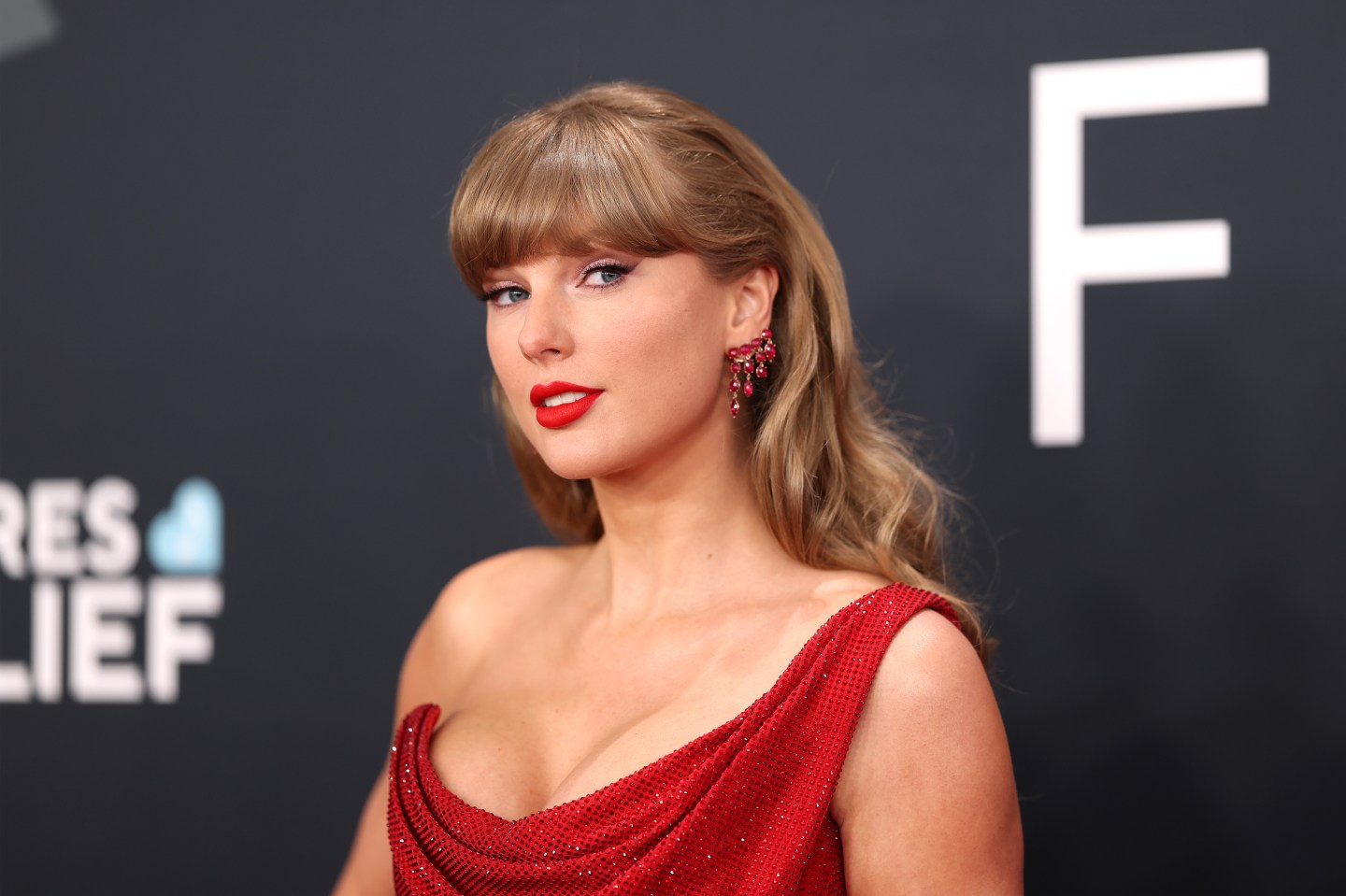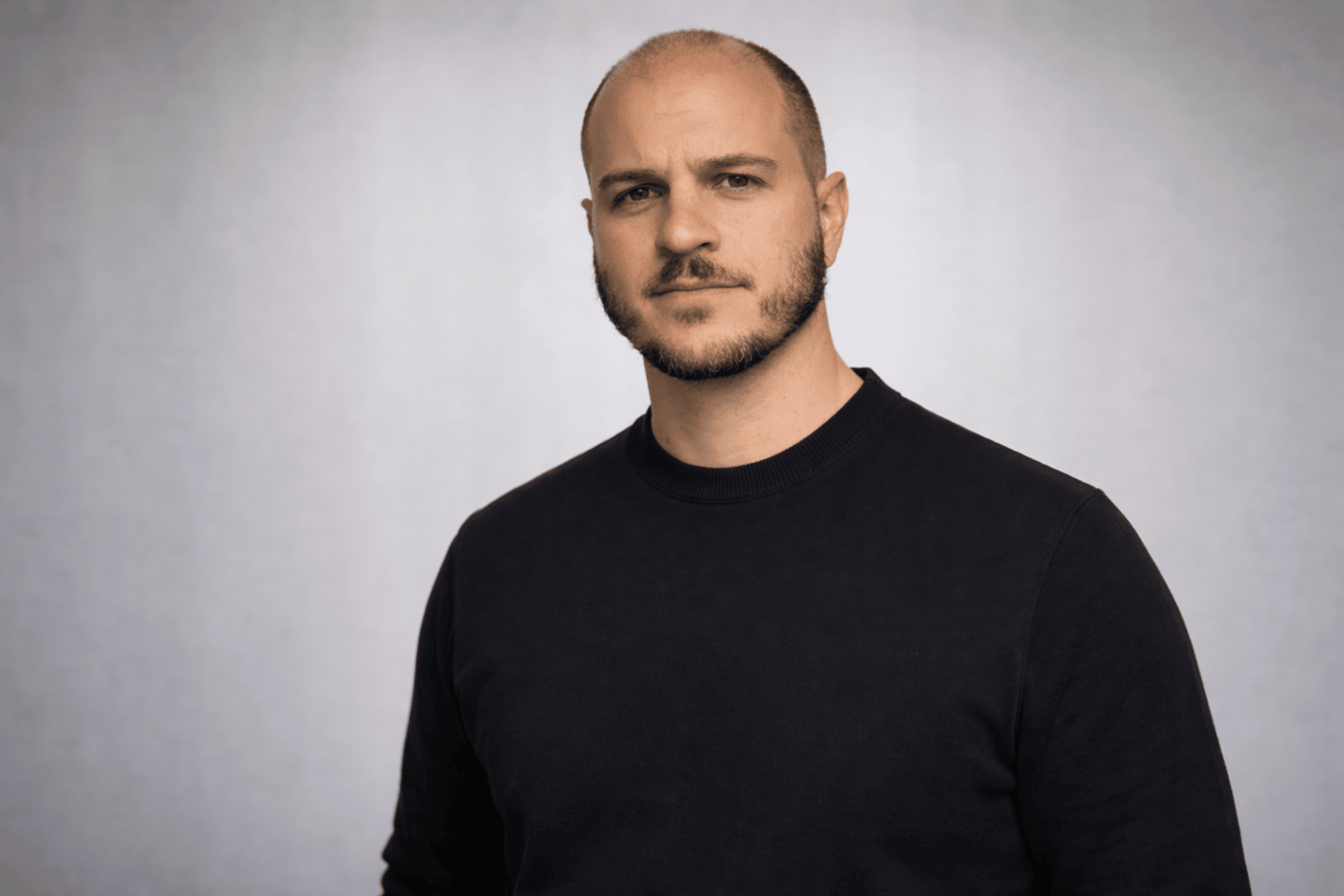In 2016, Taylor Swift was canceled. Snake emojis flooded her Instagram comments. In 2017, she came back with Reputation, her defiant album, featuring snake imagery everywhere. She knows how to reclaim an insult—and she just did it for the “girlboss.”
“Did you girlboss too close to the sun? Did they catch you having too much fun?” she sings on “Cancelled!” on her latest album The Life of a Showgirl. The track seems to address a friend of the pop star who is experiencing “social outrage,” as Swift said in an introduction to the song during her $33 million box office weekend release party event. Swift broadened that experience to her entire fan base: “People gossiping about you in your town, negative comments you read on your Instagram—you can literally feel canceled by any sort of social backlash,” she said.
When I first heard the “girlboss” lyric, I was startled. Those of us who are deep in the female founder space will probably always have a little PTSD when it comes to that particular word. But Swift has always been a little cheesy—and deeply aware of both our evolving culture, and her place in it. Even if she doesn’t follow the intricacies of Away and Outdoor Voices, she sees how our culture treats ambitious women. She may have watched a viral TikTok or Candace Owens using the “too close to the sun” phrase to go after Blake Lively—either (or neither) way, it’s not a surprise it resonated with the pop star, who due to her four album-variant, cardigan-selling approach to music has sometimes been framed as the ultimate capitalist girlboss.
In the years since her cancelation, Swift has, as they say, put in the work. Five new albums in five years. Four re-recorded albums, all with new songs. A record-breaking, multi-year, globe-spanning tour. Time person of the year. Buying back her masters. Becoming a billionaire—extremely rare as a woman in entertainment relying on core creative work and not a beauty brand. And her latest album helped that net worth reach $2 billion.
Swift learned, and proved, the ultimate truth for the canceled. If you just keep going, putting out work that people love and want more of—whether it’s music or a startup’s products—they’ll come around. Men (including those accused of more serious offenses) have long embraced the strategy. Now women are trying it too.
That doesn’t mean being “canceled” isn’t difficult. Swift sings of having “matching scars” on this song. While we can’t know the emotional wounds she carried from being publicly hated, we do know that the world doesn’t hate her anymore. Instead, it loves and celebrates her for the very things—her earnestness, her openness—that once caused her to hide away. (Mixed reviews of this album aside.)
Sophia Amoruso, who coined the term “girlboss,” posted a video in response to the song last night. This was her take: “Culture rewards female ambition—then it mocks it, and then it reclaims it when it feels safe again.”
Girlbosses were already on their way back in this year. From the Wing’s Audrey Gelman to Outdoor Voices’ Ty Haney, founders are brushing off their battle wounds and trying again. And as a culture, we’re finally ready for it, as Swift would say. Even that much-maligned concept of the “girlboss”—it’s entering a third phase of its meaning. If first it was aspirational and then it was a punching bag, now it’s a battle-tested, defiant woman who knows what people might say but goes for it anyway.
Swift knows all of this. And being name-checked in one of her songs, whether you’re Charlie Puth or a girlboss, only makes the comeback official.
Emma Hinchliffe
emma.hinchliffe@fortune.com
The Most Powerful Women Daily newsletter is Fortune’s daily briefing for and about the women leading the business world. Subscribe here.
ALSO IN THE HEADLINES
Sean 'Diddy' Combs was sentenced to just over four years in prison. He was convicted on two counts of transportation to engage in prostitution in a case that seemed to test the power of #MeToo today. Prosecutors had sought an 11-year sentence. His attorneys say they plan to appeal. CNN
Bari Weiss is the new editor-in-chief of CBS News. Paramount's deal to acquire her media company The Free Press for a reported $150 million is official. CNN
Gisèle Pelicot is back in court today. The French woman who braved the world after being raped by her husband and men he recruited online will attend the second trial of one of those men, who appealed his verdict. Guardian
Japan is likely to get its first female prime minister. The country's ruling party elected Sanae Takaichi as its new leader. A former economic security minister, she's described as "ultra-conservative" within an already conservative party. Politico
The WNBA commissioner's response to player backlash hasn't quieted the noise. Cathy Engelbert denied making some of the comments the Minnesota Lynx's Napheesa Collier shared; Collier then reportedly canceled a 1:1 meeting between the pair. Discussion about the future of WNBA leadership continues.
Midi Health raised a $50 million Series C. The menopause startup founded by Joanna Strober, which already has a host of celebrity backers, has now raised $150 million in total funding. Business Insider
ON MY RADAR
The fight for the future of women's basketball New Yorker
The power of a smaller breast New York Times
How two blond suburban moms gave Democrats an answer to the rightwing media ecosystem Guardian
PARTING WORDS
"If you want to save what is still beautiful in this world, then think about the actions you take each day. ... Don’t give up. There is a future for you."
— Jane Goodall, in a posthumous interview on the new Netflix series Famous Last Words. Hers is the first in a series of interviews with leading figures that will air after their deaths.













